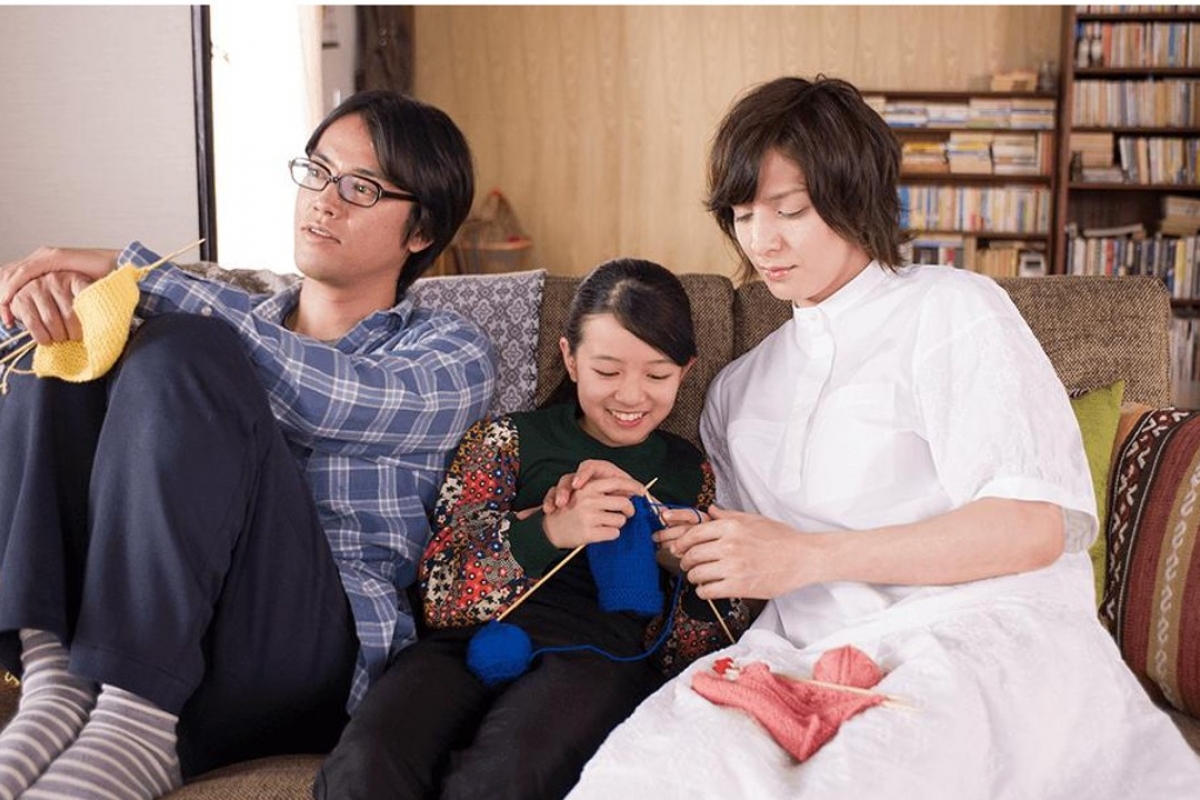Black Panther. Love, Simon. The Force Awakens. It’s wonderful when you can see someone like you in a movie. Representation is a perennial struggle in the United States, especially with the diversity in cultures and race here. In Japan? Representation issues fall more on cultural minorities like underrepresented religions or transgender people. Close-Knit tries to jump start that conversation in Japan about representation with an understated, on the nose tale about the many ways love and family can be expressed.
Poor young Tomo (Rinka Kakihara). Coming home from school, usually mom (Rie Mimura) isn’t there, but even when she is, she’s coming in late from partying, and napping, showing no interest in caring for Tomo. After days of not being home, Tomo reaches out to her uncle Makio (Kenta Kiritani) for help. Makio agress to let Tomo stay with him, but not just Makio. Tomo learns that Makio has fallen in love with Rinko (Toma Ikuta), a post op transexual woman, who lives with Makio in their tiny apartment. The couple do their best to make Tomo feel like she’s at home, despite what traditional Japanese society might think of the siutation.
Close-Knit isn’t exactly subtle with its messaging. Rinko is portrayed as a saintly figure: as Spike Lee might say, your magical transgender person. I counted potentially one, tiny mistake she makes which she instantly apologizes for. Meanwhile most of society around her is unfeeling or downright cruel in her presence. When Close Knit drifts too far into driving home its themes, you might roll your eyes at the speechifying or the hilarious outward cruelty of some of the characters. There’s also a needless subplot about Tomo’s friend who, and you’ll never believe this, is bullied ad nauseum because he’s clearly homosexual. However, with a subject that may be foreign to large chunks of Japan’s population, direct storytelling is probably the right strategy to drive him Close Knit’s point of inclusivity and tolerance to a previously mostly unaware populous.
The bummer of the movie’s speechifying is Close Knit is downright wonderful in its smaller, quiet moments. Rinko and Tomo’s relationship, the center of the film, unfurls slowly and gradually in cute, fascinating ways. Naoko Ogigami’s story has you from their first meet cute. Tomo leaves the morning after meeting Rinko with an adorable packed lunch from Rinko…that Tomo didn’t want to eat because it was so cute…which makes Tomo sick when she tries to eat it later after the lunch has been sitting out in the open…which Rinko freaks out about potentially poisoning her little friend. From there we go on picnics, play Wii games, take breathtaking bike rides under Japanese cherry trees, and embark on wholesome visits in the retirement home of Tomo’s Grandmother. Watching Rinko and Tomo develop that bond of love both desperately want would melt the heart of even the most hate filled person. That’s thanks in large part to Rinka Kakihara and especially Toma Ikuta, who are both excellent her using their quiet charm and seething anger to deliver the emotional impact the movie is going for.
Sometimes its just important to get a foot in the door, to show that you exist. Close Knit’s best moments convey this message, with Rinko content in who she’s become, using her message of love and empathy to win over the stone and hate-filled hearts of those who might discriminate against transgendered individuals. I hope some poor unheard voice sees Naoko Ogigami’s tale, which will remind that person that they are not alone, and, as Mr. Rogers poetically put it, that you’re loved, and capable of loving. All you have to do is knit it out!

